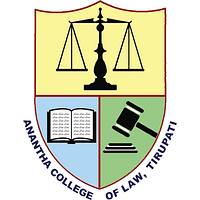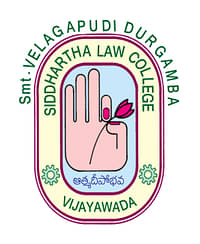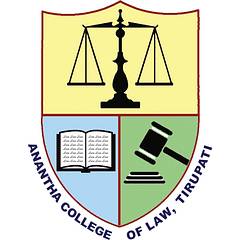Rajiv Gandhi Institute of Law LLB is a 3 - 5 Years programme offered in specialization like Law. The course duration of LLB at Rajiv Gandhi Institute of Law is 3 - 5 Years. The LLB degree helps students to gain profound knowledge and skills that will help them to tackle the real world challenges.
Interested in applying for this course? Visit the official website and submit the application. Rajiv Gandhi Institute of Law LLB admission is offered on the basis of the merit of the qualifying exam.
Once the admission criteria are met, one needs to confirm their admission by paying the Rajiv Gandhi Institute of Law LLB course fees and getting the documents verified.
2 Courses are offered by Rajiv Gandhi Institute of Law
Bachelor of Law (LL.B.)
B.A.+Bachelor of Law (LL.B.)
Rajiv Gandhi Institute of Law LLB Highlights 2024
| Particulars | Details |
| LLB specialisations | 1 |
| Mode of Study | Offline |
| Duration | 3 - 5 Years |
| Top Recruiters | TRILEGAL, AZB & Partners, Shardul Amarchand Mangaldas & Co., Induslaw, J. Sagar Associates (JSA) |
Rajiv Gandhi Institute of Law LLB Eligibility Criteria
Prior to applying for the course it is a mandate for the aspirants to meet the Rajiv Gandhi Institute of Law LLB eligibility criteria. After ensuring that the eligibility criteria is met, submit the application form. One can check the Rajiv Gandhi Institute of Law LLB admission criteria which has been tabulated below.
Rajiv Gandhi Institute of Law Eligibility Criteria for LLB
| Degree | Eligibility Criteria |
| LLB | To be eligible for the LLB degree program at Rajiv Gandhi Institute of Law, Kakinada, candidates must have completed their undergraduate degree from a recognized university with a minimum of 50% aggregate marks. Additionally, candidates must have a valid score in the Common Law Admission Test (CLAT) or any other equivalent entrance exam approved by the Bar Council of India. Candidates belonging to reserved categories may be eligible for relaxation in the minimum qualifying marks as per government regulations. It is also important for candidates to meet any other specific requirements set by the institute for admission to the LLB program. |
Rajiv Gandhi Institute of Law LLB Admission 2024
Admission to the LLB at Rajiv Gandhi Institute of Law is subject to meeting the eligibility criteria. All shortlisted candidates have to complete the Rajiv Gandhi Institute of Law LLB admission process by getting their documents verified and paying the admission fee.
Rajiv Gandhi Institute of Law LLB Application Process
Rajiv Gandhi Institute of Law LLB application form has to be submitted online by visiting the official website. Candidates aspiring to take admission to the LLB course at Rajiv Gandhi Institute of Law have to first check and meet the eligibility criteria and then proceed further with the application process.
Steps to fill Rajiv Gandhi Institute of Law LLB application form:
- Step 1: Visit the official website of Rajiv Gandhi Institute of Law and click on ‘apply online’.
- Step 2: Now, you will be redirected to the admission page of Rajiv Gandhi Institute of Law. Complete the registration process and create a profile.
- Step 3: Fill in all details available in the Rajiv Gandhi Institute of Law LLB application form.
- Step 4: Now pay the Rajiv Gandhi Institute of Law LLB application fee and click on submit button.
- Step 5: After the submission, keep a hard copy of Rajiv Gandhi Institute of Law LLB Application Form.
Documents Required for Rajiv Gandhi Institute of Law LLB Admission:
- Marks sheet of class 10th standard
- Marks sheet of class 12th standard
- Transfer certificate (if required)
- Character certificate
- Passport-size photographs
Rajiv Gandhi Institute of Law LLB Placement 2024
Rajiv Gandhi Institute of Law LLB placement 2024 witnessed participation from companies like TRILEGAL, AZB & Partners, Shardul Amarchand Mangaldas & Co., Induslaw, J. Sagar Associates (JSA), etc.
Rajiv Gandhi Institute of Law, Law Placements 2024
| Specialization | Top Companies |
| LL.B. (Bachelor of Laws) | TRILEGAL, Khaitan & Co., Cyril Amarchand Mangaldas, Shardul Amarchand Mangaldas & Co., Luthra & Luthra Law Offices, AZB & Partners, Induslaw, Desai & Diwanji, J. Sagar Associates (JSA), Nishith Desai Associates |
Rajiv Gandhi Institute of Law Reviews
Overall: Rajiv Gandhi Institute of Law offers a comprehensive legal education program with a strong emphasis on practical skills development. The faculty is experienced and dedicated, providing students with a supportive learning environment. The campus facilities are modern and well-maintained, fostering a conducive atmosphere for academic and extracurricular activities. However, some students have expressed concerns about administrative inefficiencies and the need for more industry collaborations for better internship and placement opportunities. Overall, it's a reputable institution with room for improvement in certain areas.
Placement: The placement process at Rajiv Gandhi Institute of Law is a dynamic aspect of the institution's academic framework. The college endeavors to facilitate placements through various initiatives such as career counseling sessions, mock interviews, and networking opportunities with legal professionals and organizations.The college's placement cell plays a pivotal role in connecting students with potential employers, organizing recruitment drives, and liaising with law firms, corporate houses, government agencies, and legal NGOs to create opportunities for students. The placement cell also assists students in preparing their resumes, honing interview skills, and understanding the recruitment process.Over the years, the college has witnessed a mix of success stories, with many students securing lucrative job offers in reputed law firms, corporate legal departments, judiciary, government agencies, and international organizations. These placements are often the result of the college's efforts to forge strong industry connections and partnerships, enabling students to access a wide range of internship and job opportunities.However, it's important to note that the placement scenario may vary from year to year and among different batches of students. While some students may secure placements easily, others may face challenges depending on factors such as academic performance, specialization, and individual career aspirations.To enhance the placement process further, the college could focus on expanding its network of recruiters, organizing industry-specific workshops and seminars, and providing specialized training in emerging areas of law to align with the demands of the legal profession.Overall, while there are success stories, there is potential for further improvement in the placement process to ensure that all students have access to meaningful internship and job opportunities that align with their career goals.
Infrastructure: Campus Facilities: The college campus at Rajiv Gandhi Institute of Law boasts modern and well-maintained facilities that cater to the academic, recreational, and extracurricular needs of students. This includes spacious classrooms equipped with audio-visual aids, seminar halls for guest lectures and events, and a well-stocked library with a vast collection of law books, journals, and online resources. Moot Courtrooms: The college is equipped with state-of-the-art moot courtrooms where students can simulate legal proceedings, hone their advocacy skills, and participate in moot court competitions. These moot courtrooms are designed to mimic real courtroom settings, providing students with practical experience and exposure to courtroom procedures.Technology Infrastructure: Rajiv Gandhi Institute of Law invests in technology infrastructure to support teaching, learning, and research activities. This includes computer labs with internet connectivity, multimedia projectors, and software applications relevant to legal research and practice. Additionally, the college may offer access to online databases, legal research platforms, and e-learning portals to facilitate remote learning and research. Library Resources: The college library is a hub of academic resources, offering a comprehensive collection of books, journals, periodicals, research papers, and electronic databases covering various branches of law. The library provides a conducive environment for study and research, with dedicated study spaces, reading rooms, and access to online resources for students and faculty.Recreational and Sports Facilities: In addition to academic facilities, the college may also provide recreational and sports amenities to promote holistic development and well-being among students. This may include sports grounds, indoor sports facilities, gymnasiums, and recreational areas where students can engage in physical activities, unwind, and socialize with their peers. Hostel Accommodation: For students requiring accommodation, the college may offer hostel facilities with comfortable living spaces, basic amenities, and security measures to ensure the safety and well-being of residents. Hostels may be located within the campus or in close proximity, providing convenient access to academic facilities and campus life.Overall, the infrastructure at Rajiv Gandhi Institute of Law is designed to create a conducive learning environment that fosters academic excellence, practical skills development, and overall well-being among students pursuing legal education. The modern facilities, technology infrastructure, and support services contribute to a enriching educational experience for students.
Faculty: The faculty at Rajiv Gandhi Institute of Law comprises a diverse team of experienced educators, legal practitioners, and scholars who bring a wealth of knowledge and expertise to the classroom. Many faculty members hold advanced degrees in law from prestigious institutions and have significant experience working in various sectors of the legal profession, including academia, judiciary, law firms, government, and public interest organizations.One of the strengths of the faculty is their commitment to academic excellence and student success. They are dedicated to providing quality education and mentorship to students, fostering critical thinking, analytical skills, and a deep understanding of legal principles and concepts. The faculty members often go above and beyond their academic duties to support students, offering guidance, counseling, and career advice.Moreover, the faculty at Rajiv Gandhi Institute of Law adopts innovative teaching methodologies to make the learning experience engaging and interactive. They incorporate case studies, moot court competitions, research projects, and experiential learning opportunities into their curriculum to enhance students' practical skills and real-world understanding of the law.The accessibility and approachability of the faculty are also notable aspects. Students often find the faculty members to be easily approachable, willing to address their queries, provide academic assistance, and offer feedback on their work. This fosters a supportive learning environment where students feel valued and empowered to excel in their academic pursuits.However, like any institution, there may be occasional areas for improvement within the faculty. This could include providing additional professional development opportunities for faculty members, promoting diversity and inclusivity among the faculty body, and ensuring effective communication channels between faculty and students.Overall, the faculty at Rajiv Gandhi Institute of Law plays a crucial role in shaping the next generation of legal professionals, imparting knowledge, instilling ethical values, and inspiring students to make a positive impact in the legal field and society at large. The college may organize workshops, seminars, and faculty development programs to enhance the teaching and research skills of faculty members. These initiatives aim to keep the faculty updated with the latest pedagogical techniques, legal developments, and research methodologies, thereby ensuring the delivery of high-quality education to students.
Explore More Engineering Colleges in Andhra Pradesh
By Degree
By Specialization
- Colleges in Kakinada
- Rajiv Gandhi Institute of Law
- Rajiv Gandhi Institute of Law Course & Fees
- LL.B. (Bachelor of Laws)
























